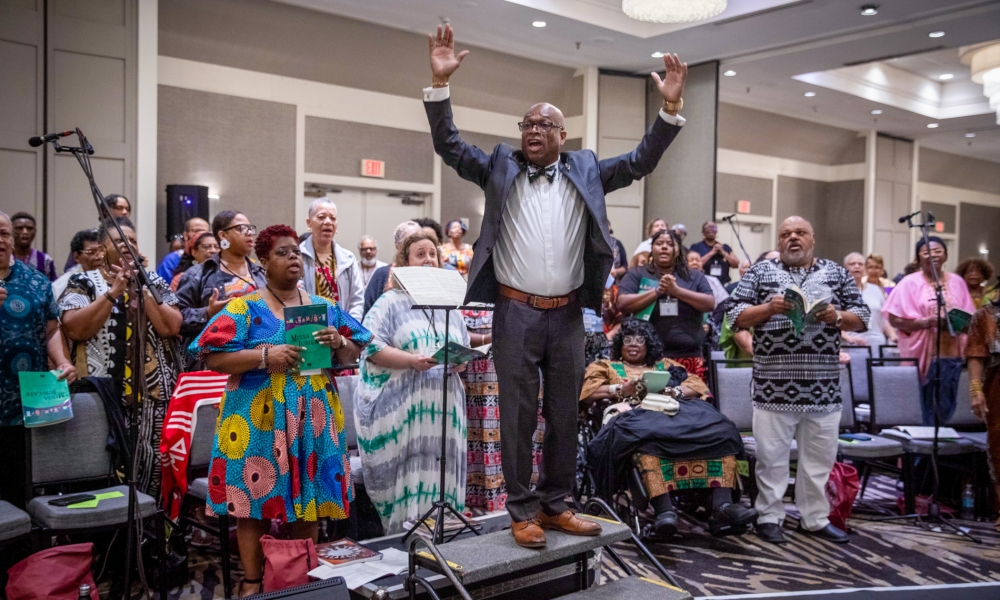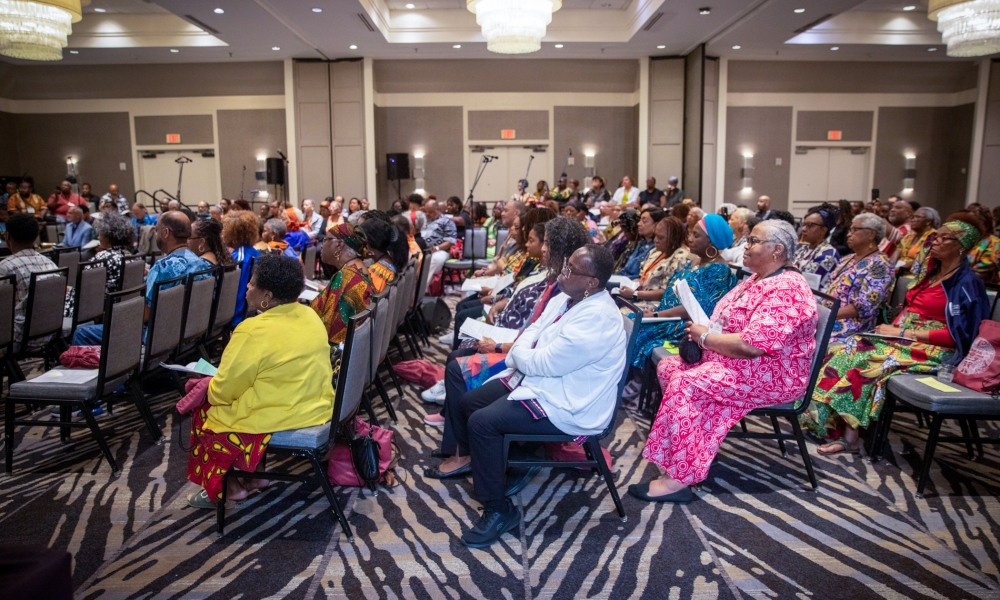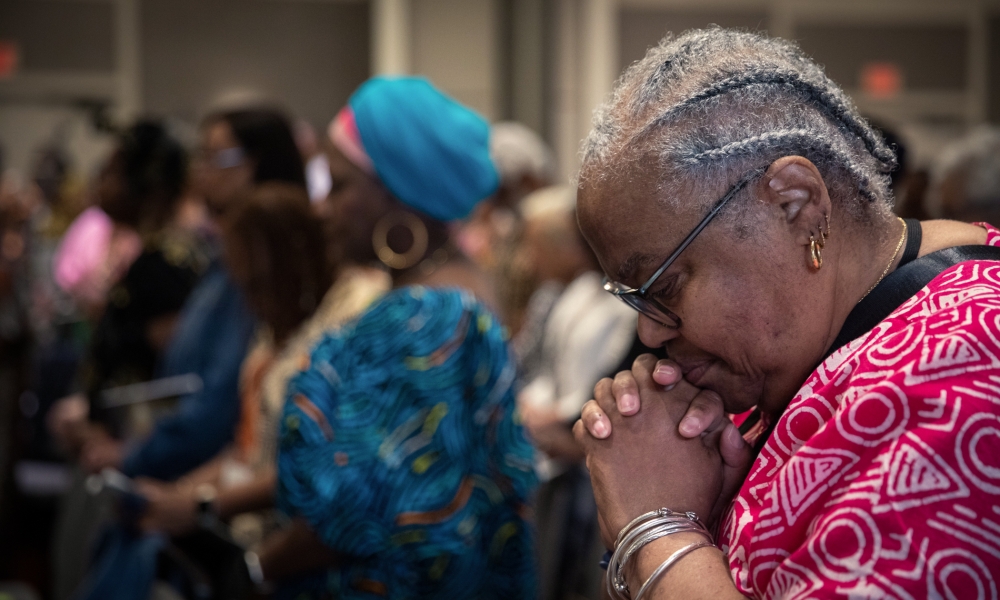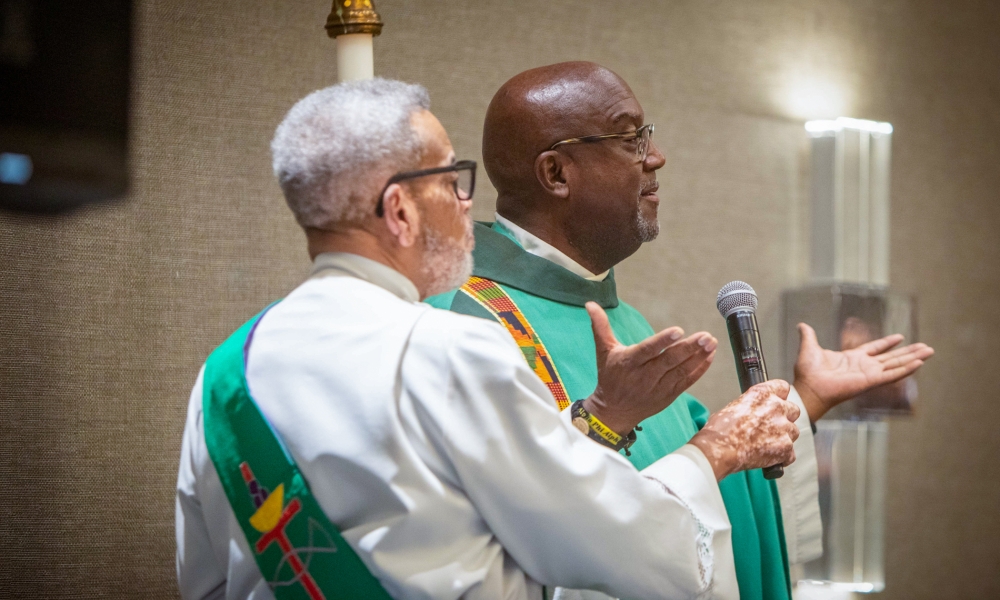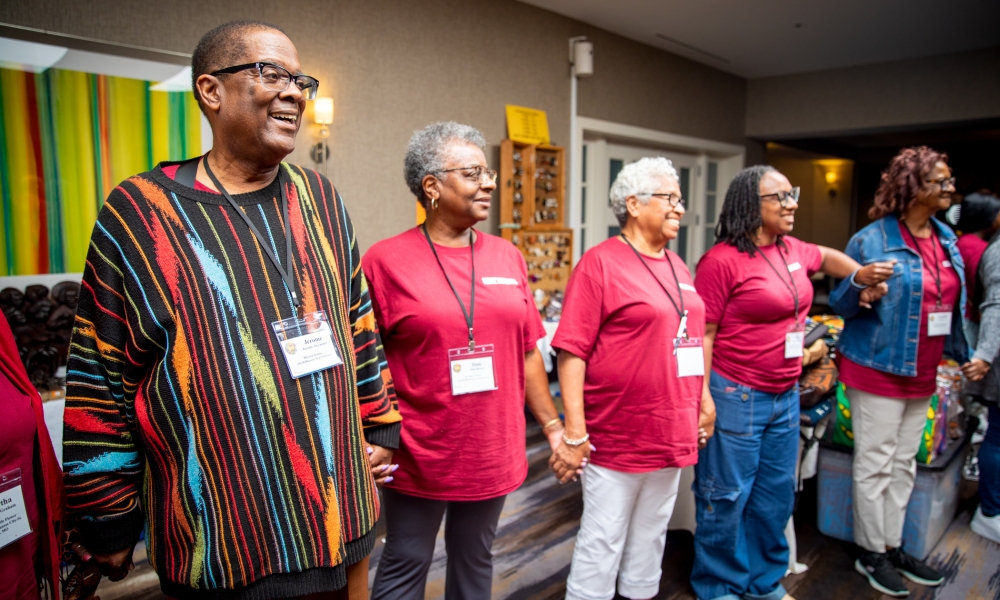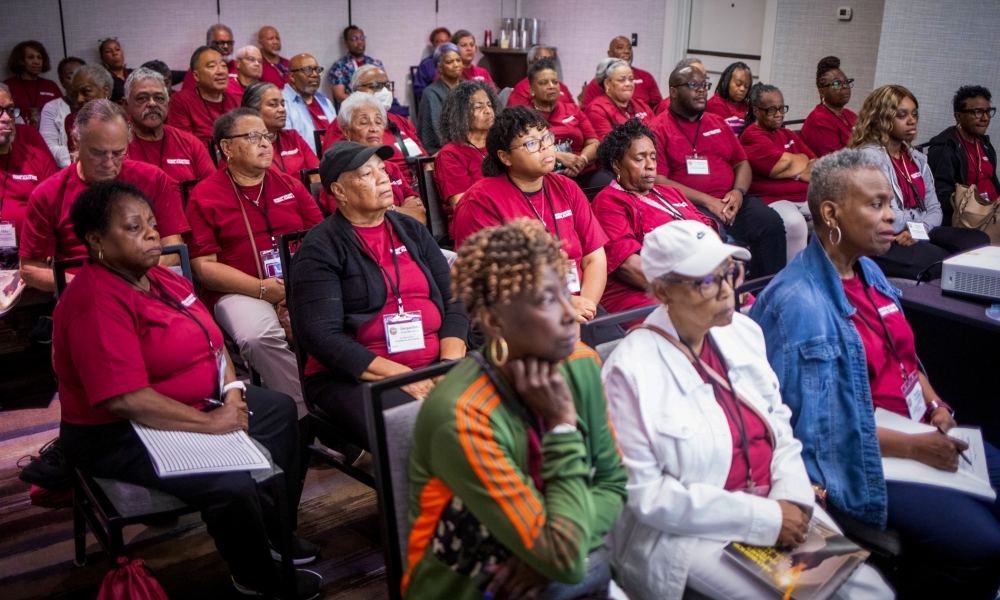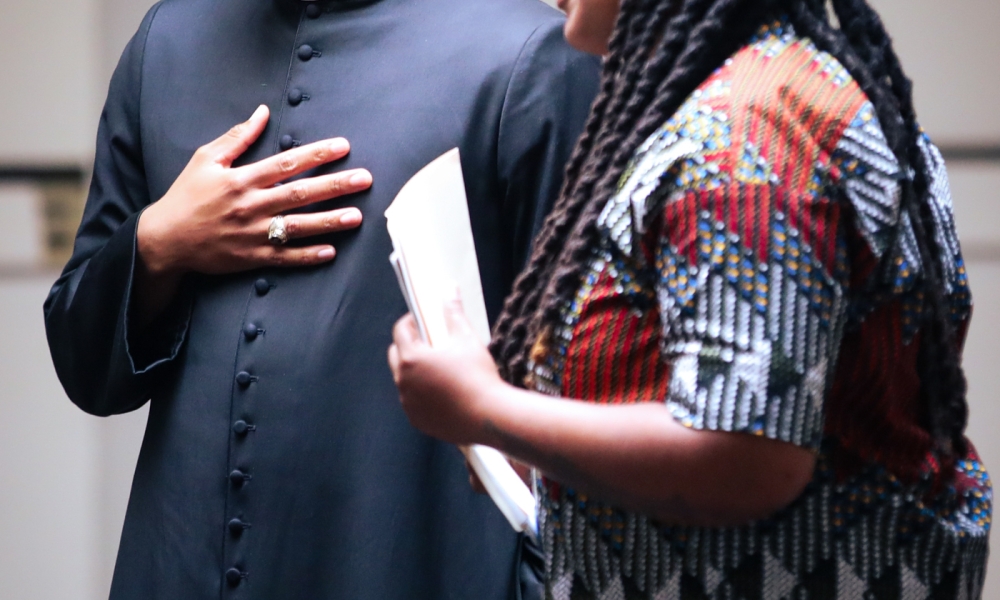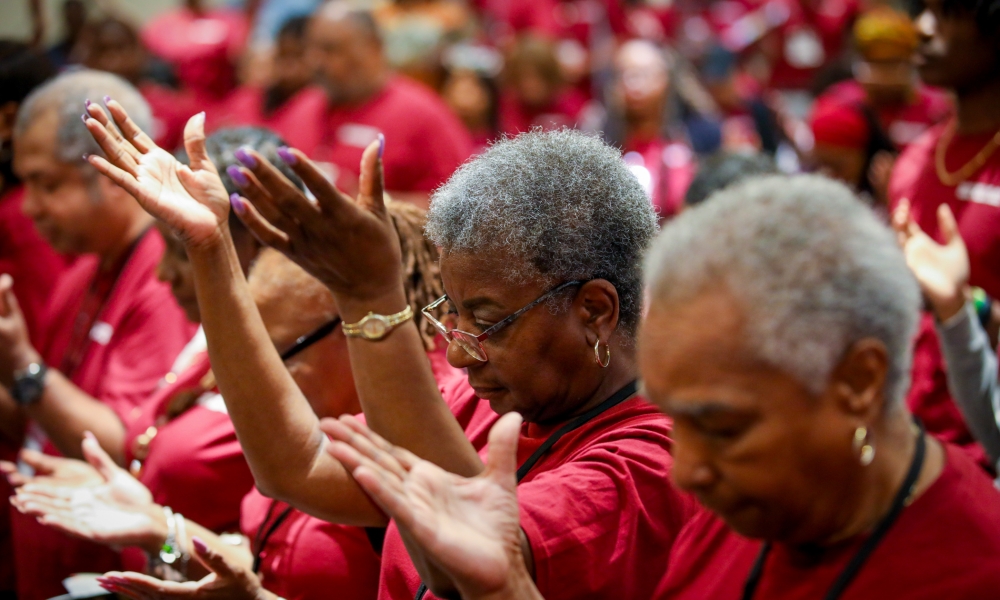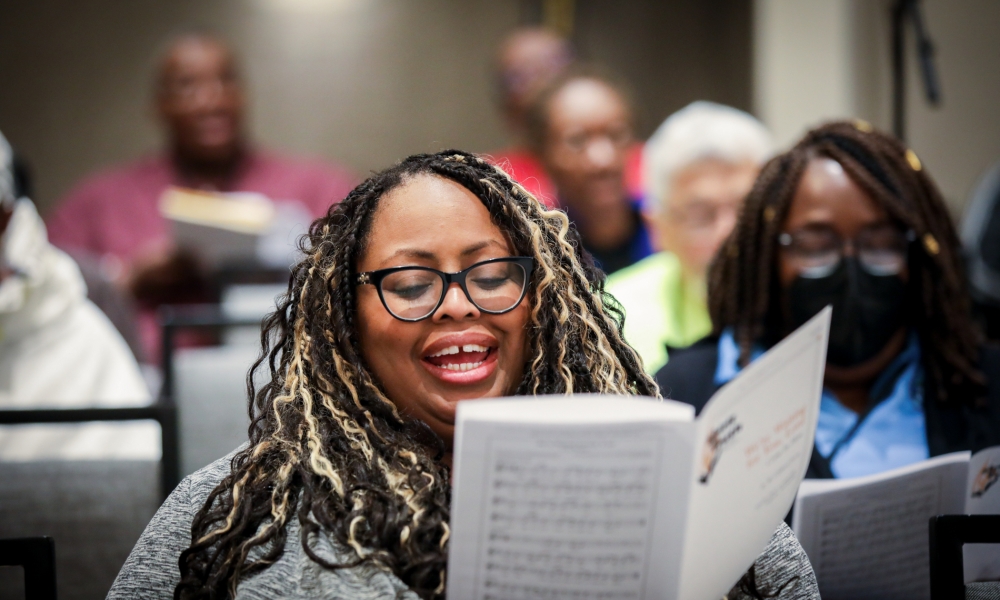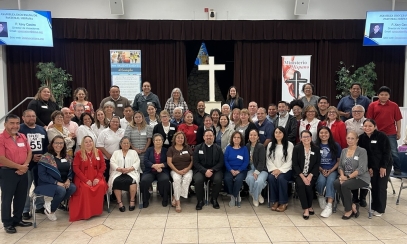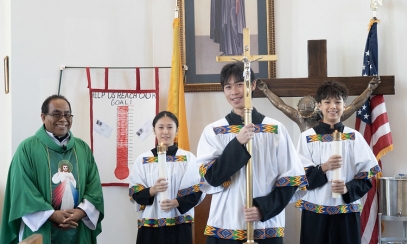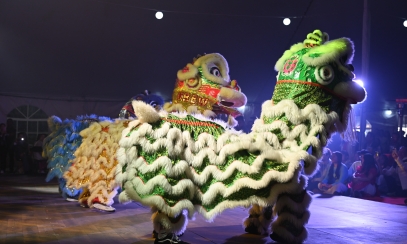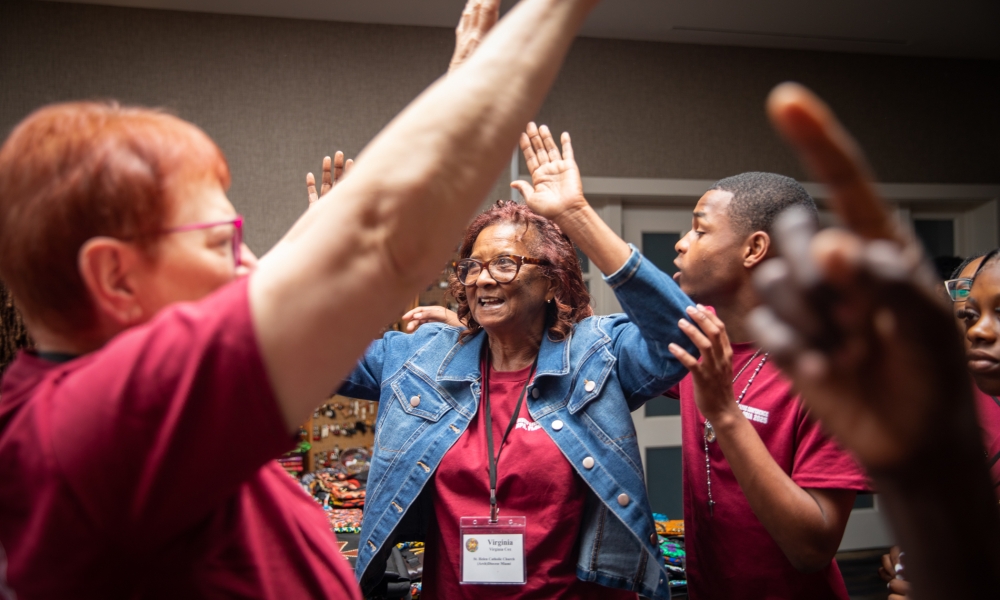
A Breath of Fresh Air: Yvonne Nellum Reflects on Black Catholic Identity at the 2025 Lyke Conference
Getting your Trinity Audio player ready...Amid the vibrant sounds of gospel music, spirited preaching, and communal prayer, Yvonne Nellum discovered something deeply powerful at the recent 2025 Lyke Conference: belonging.
Amid the vibrant sounds of gospel music, spirited preaching, and communal prayer, Yvonne Nellum discovered something deeply powerful at the recent 2025 Lyke Conference: belonging.
Held June 17–20, 2025, at the Hilton Tampa Airport Westshore, the event embraced the theme “This Little Light of Mine – Celebrating Our Black Catholic Faith.” As one of the premier Black Catholic liturgical gatherings in the U.S., the Lyke Conference brings together worshippers, ministers, preachers, dancers, and music ministers to celebrate African American heritage and expressions of faith.
This year’s program featured the renowned Clarence Rivers Institute for Music Ministers, honoring the legacy of Black Catholic liturgical composer Clarence Rivers. Ministries included the Hush Harbor for Preachers, the Sister Thea Bowman Institute of Sacred Movement, and the URUDISHA NYUMA (RECLAIM) Young Adult Summit. Attendees engaged in gospel choir sessions, liturgical dance workshops, and preaching seminars rooted in the Black prophetic tradition, alongside sessions on parish outreach and financial stewardship.
Yvonne, from St. Peter Claver Catholic Church in Tampa, participated as part of the community—singing in the parish choir while soaking in the worship, music, and worshipers like herself:
“This conference is like a breath of fresh air. You’re surrounded by people who look like you… It gives you a new burst of energy to go back to your parish.”
For her, the event was a reaffirmation of identity, explaining: “To be African American and Catholic… takes a lot—it means holding on to both parts of your identity and faith.”
The conference brings Black ministry to life, making gospel music, dance, passionate preaching, and community workshops a central part of the worship experience.
Yvonne emphasized that Black ministry provides culturally grounded expressions of Catholic faith: “The style of preaching is different, the energy is different—and that matters.” Such elements—preaching styles rooted in Black oratory, liturgical dance taught at the Sister Thea Bowman Institute, and music training from the Rivers Institute—all reinforce that identity.
Another major highlight is also the National Black Catholic Congress, a national gathering that echoes the Lyke Conference’s mission on a larger scale. Held every five years, it gathers thousands to celebrate liturgy, art, music, and Catholic heritage through a Black cultural lens.
As Yvonne put it, these events are about spiritual renewal and cultural affirmation, “The preaching, the songs, the dance—it all lifts your spirit. And when you go back to your parish, you carry that spirit with you and share it with others.”
In a Church where African American Catholics are often a minority, events like the Lyke Conference offer a sacred space to “know who you are and whose you are.” They preserve traditions, embolden identity, and equip individuals to bring enriched liturgy and renewed energy back to their home parishes.
“We’re authentically Black and authentically Catholic.”
Her words remind us that Black ministry is more than being seen—it’s about living out a faith that’s shaped by culture, full of spirit, and meant to strengthen the whole Church.
For more information on Black Catholic Ministry in our diocese, visit www.dosp.org/intercultural/blackcatholic.

